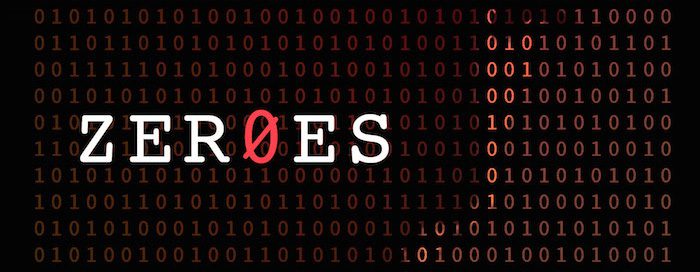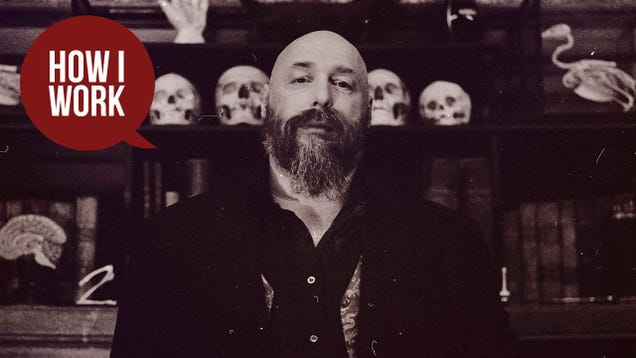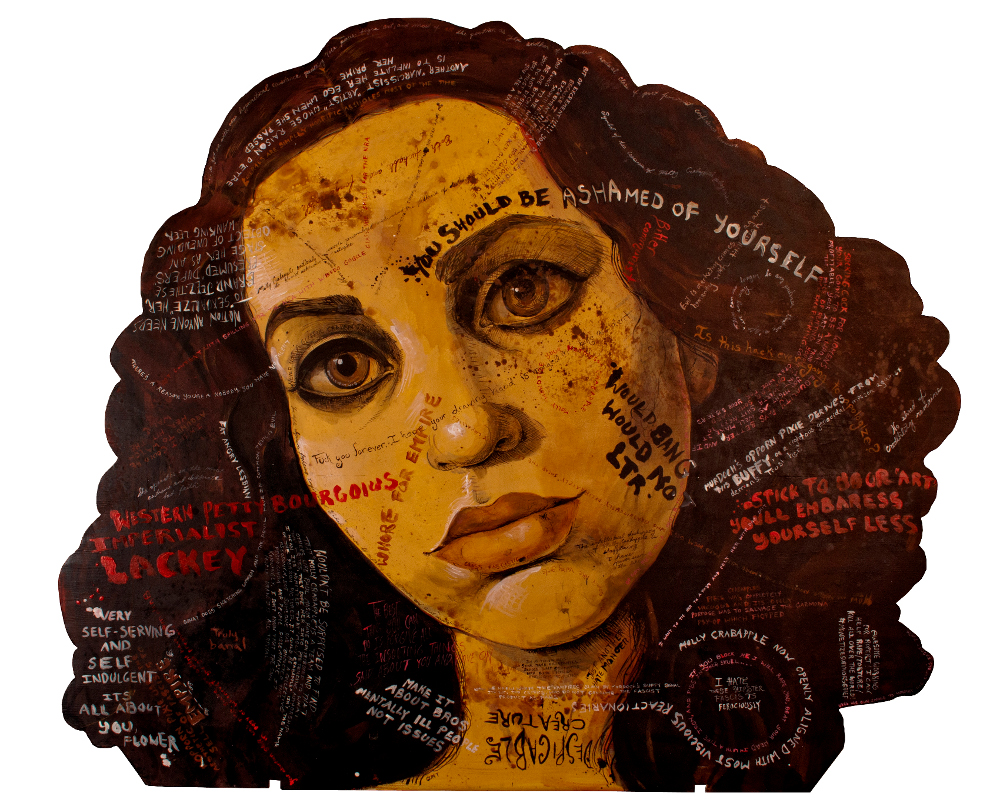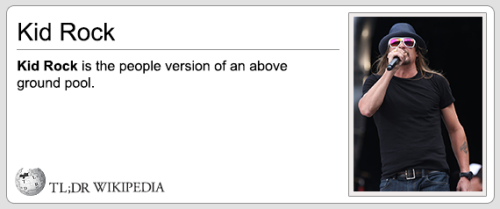
Two pieces of reading homework before we begin:
First up, the ever-smart Kameron Hurley — the Cold Equations that govern publishing.
Second, the big news surrounding the Author’s Guild survey that suggests more and more authors are getting paid less and less, and something-something poverty line.
Kameron’s link — I got nothing to add except, high-five to her for talking about this stuff.
The Author’s Guild survey — nnnyeah, I’m not really willing to count that as meaningful information. The data in that survey, according to Publisher’s Weekly, skews this way:
The survey, conducted this spring by the Codex Group, is based on responses from 1,674 Guild members, 1,406 of whom identified either as a full-time author, or a part-time one. The majority of respondents also lean older—89% are over the age of 50—and toward the traditionally published end (64%).
Note that I am not a guild member. I’m not sure I know many (any?) guild members.
It’s a very narrow slice of the author cake, and made even narrower when you consider how many of them are strictly traditionally-published, and how many are over 50 years of age. (I’m not suggesting any age-ist critique, but rather, I’m noting that the more you dwindle survey participants, the shallower the pool becomes of meaning.)
That said, regardless of the depth (or lack of depth) the author’s guild survey possesses, I think once in a while it’s a good idea to wad up all the financial realities that surround a writer’s existence, cram them into a cannon, and then fire them top speed into your solar plexus.
I am a full-time writer.
I do pretty okay for myself. I support my family with my words, which is pretty cool — and, no doubt, pretty rare. I am aware and have been privy to the many peaks and valleys of a writer’s career, and the key to surviving as a writer is learning how to survive the valleys — either figuring out how to glide from peak to peak, or having a plan to weather the lean times when things go down. Surviving the peaks is easy — everyone enjoys good news. But some authors can’t navigate the stark elevation drop and, understandably, move on to more stable ground.
Let’s talk about the financial realities that you’ll deal with — both peaks and valleys.
On advances, sure, there still exists those advances that are $100,000, or are up over a million. But if you’re a new author, you’ll probably find yourself in the $5k – $15k range. And if you’re a practiced, published author, you might drift higher, which is from $15k-35k.
You’ll note that none of those numbers individually make for good full-time money.
You can do okay on $35k, but depending on where you live, it might strain the budget.
(And here, a digression: where you live actually matters to the writer. It doesn’t matter in terms of BEING CLOSE TO THE ACTION — your proximity to NY Publishing is not as important to an author as proximity to LA MovieLand is to a screenwriter. No, it matters because some parts of the money cost less than others. If you are one of those writers who wants very badly to live in New York City or its surrounding environs, be prepared to discover that your book advance will pay for 14 minutes of rent, and you’ll be able to maybe afford an apartment that is roughly the size of a dented Porta-potty. In fact, spoiler warning: it is a dented Porta-potty. This is also true if you want to live in most of the big cities. Everything in the cities is more expensive. I live in Pennsyltucky, where things are more expensive than, say, Down South or the Middle Of American Cornsville, but remain a helluva lot less expensive than NYC. So, if you want your advance money to stretch like Spandex — don’t live in the city. Also don’t forget to budget for health care.)
Now, one of the ways that this is softened somewhat is that an author often ends up signed for a multi-book deal — usually two or three, or if you’re the mighty John Scalzi, a 43-book deal to the tune of a basket of golden dodo eggs. (That monster doesn’t even hoard his eggs like a proper person would. He just eats them. Greedily eats the baby golden dodos right out of their little luxe eggs. The crunch of tiny porcelain bones echoing across his moon veranda.) So, a $5k book deal becomes $10k or $15k. A $33k book deal, when tripled, becomes a low six-figure deal. And when that happens, that’s you cresting a peak — but it’s also good to keep your eyes peeled ahead for when that money dries up and leaves you again in a valley. (Valleys are when you try to write the books you owe and also try to stir up new book deals.)
Ostensibly, this is a good thing.
Except –
Consider the nature of the multi-book deal. Often they want to turn this into a series deal — three books might mean a trilogy, or two books might mean the start of a series (or more problematically, two-thirds of a trilogy, which means if those two books don’t sell, the trilogy will never complete). This is a tough row to hoe because traditional wisdom says that book sales for an SFF series don’t tend to go up — so, if you sell 1500 copies of that first book, it’s not expected that book two will sell more than that and is likely to, in fact, sell fewer copies. I distrust the logic behind this, as some readers want to buy into a series after it has a few books out — or they want a trilogy only when it’s completed because they’ve been burned too many times by trilogies that failed to complete — and ironically, it’s this exact logic that sometimes causes trilogies to die in the crib. B&N will see that the first book didn’t sell that well, and they will cut order for the second book — which helps ensure that second book will sell more poorly, at least in physical format. (B&N has a surprising amount of sway when it comes to traditional publishing. They can demand new covers, new titles, and so on. As the last big player in books, they have juice and they use it. Of course, they also lose more and more of their retail floor space to Things That Are Not Books.)
(Also worth a good news note here: indie bookstores are on the rise, sales-wise. But back to the bad news, B&N has suffered a loss again for the fifth straight quarter.)
Of course, that’s all physical stock. E-books are a different world, and Amazon rules that world.
Mostly. Sorta.
We now have news that says e-book sales are plateauing or even slipping in the face of print sales — the logic being, people are going back to print sales and that print is more future-proof against the digital insurgency. (Anecdotally, I have gone back to mostly print reading except when I’m traveling. Electronic devices are sources of distraction, and even when they’re walled off from those distractions, they still tickle that twitchy internet-social-media-gamer gland in me and I find it harder to lose myself in the book). Of course, what you also need to note is that publishers set the e-book prices, and have in the last several months bumped those prices up, up, up — and Amazon undercuts those prices by dropping the physical copy cost.
So, what about e-books? All of this has been very firmly traditional-flavored — what about the author-publishers putting their own work out there? I’ve discussed this in the past, but obviously with self-publishing you lose access to any kind of advance and you cut off access to certain outlets and resources, but you also gain immediate access to data plus them sweet, sweet percentage cuts of each sale. (Though the larger cut of sales should feed back a little into the ecosystem as you pay for things like covers and editors and majordomos and jet-skis.)
Self-publishing has serious value for any author, but Amazon now dominates that ecosystem. Amazon sets the rules and can change them with the fickle whimsy of a maniac artificial intelligence. NOW YOUR PERCENTAGES ARE CUT IN HALF AND ALSO FOR EVERY BOOK SOLD YOU WILL RECEIVE AN ELECTRICAL SHOCK, Amazon yells through your computer speaker. And you say, quite correctly, But I can leave you any time, Amazon. And Amazon tells you to go ahead, sure, you go right ahead and leave. And then you leave and you discover that because so many people invested their time and effort into the Amazon ecosystem that really, the other sales environments are nowhere near as robust and so while you technically have other options, that’s like saying to a food vendor, “You don’t have to sell in the grocery store, you could just set up a farmstand on the side of the road.” A viable option for some, and some will truly rock the freedom of that. Others will find the lack of access to a wider audience a struggle. Plus, Amazon institutes new programs with the distractibility of a toddler on bath salts. KINDLE UNLIMITED. KINDLE SCOUT. KINDLE WORLDS. KINDLEFACE. KINDLE UNIVERSE. KINDLE DEEP DREAM. KINDLEPALOOZA. SOYLENT KINDLE. Those present new opportunities — opportunities to make more money and sell more books sometimes. And sometimes, opportunities to have the algorithms shift like tectonic plates, losing you sales and cutting your income.
The majority of your sales will come from Amazon and, if you promote it, from direct sales. B&N, Kobo, Smashwords — those sales will be, by most experiences (though not all!) marginal.
Let’s talk a little about sales numbers.
A book that sells a few thousand copies is probably a book that’s doing well.
A book that sells a few thousand copies in its first week is really spiffy.
Some books sell a few hundred copies. Which is, erm, not ideal.
If you want on a bestseller list, expect that you’ll need to sell (roughly) 5,000 copies. Each bestseller list is curated differently and fails to factor sales from certain sources (libraries, f’rex).
For the record, that means that in a country with a population of 320 million, a bestselling novel might reach less than 0.002% of the total population. Books are a niche market.
Selling a few thousand copies also might mean earning out your advance — note that the higher the advance, the harder it is to earn it out. There is no guaranteed metric on earning out. Depends on format, book cost, where they sold, who the publisher is, if a butterfly flapped its wings in Tokyo, and if you put out the proper sacrifices to all the local and national gods. Note too that booksellers can also return unsold books which can ding your sales numbers and, for all I know, impact your spiritual karmic debt and force you to be reborn in your next life as an unpaid Huffington Post blogger. *sad trombone*
Some publishers share sales data quickly. Some won’t share it until your statements are due, and publisher statements arrive with all the speed of a three-legged, antediluvian mule. You have access to BookScan through Amazon, but BookScan is notoriously unreliable (expect it to reveal about 50-80% of actual print sales, and no digital sales — also it puzzles me to this day that Amazon refuses to offer authors the added value of telling them their daily sales numbers of traditionally-published releases, though that might undercut the value of their passive-aggressive impossible-to-discern “sales ranking” numbers, which have about as much meaning as the backwards-talking dwarf from Twin Peaks). A lot of time you operate under the auspices of grave, anxious uncertainty when it comes to the question of exactly how well your book is doing.
And how well your book does goes into the equation a publisher runs when considering whether or not to publish your next book. Again, go back to read Kameron’s post, where she lays this equation out as Books Sold + Marketability + Love. This equation also factors into bookstores choosing to carry — and hand-sell — your book. They’ll carry books that sell well. They’ll push books that will look good on shelves or that the publisher has promoted to sales tables or endcaps. They’ll carry and promote books by authors the booksellers or sales team likes. Amazon is of course outside of this — as they are outside many of the traditional systems (and mostly, thankfully so). Amazon gives little shit about you as an author or your book. They’ll sell it. It’s an always open access channel because they have theoretically infinite shelf space. Sure, this changes when it comes time to promote inside Amazon — getting onto deal pages or into certain sales — then who you are and what your book is might matter. Those are curated by people, not by whatever roving Spider Robots govern the rest of the site.
All of this is to say, it’s all quite tricky.
Peaks and valleys. And the “realities” I’m talking about are variable and unknown — so variable and so unknown that it’s hard to even peg them as confirmed realities. Writers don’t actually have a lot of data. We’re not sure what works, what doesn’t. We’re not given hard facts on why a book does well or why it doesn’t. You hear urban fantasy doesn’t sell, and yet Jim Butcher, Seanan McGuire, Kevin Hearne are all rocking. You hear horror is anathema, but some of the best books and writers out there right now are ostensibly writing horror novels (Paul Tremblay, Stephen King, Joe Hill, Mira Grant). As I am wont to say, publishing is positively oracular. It’s a lot of splayed-open pigeons and futures discerned through loops and piles of bird guts.
To go from peak to peak, you do what you can do.
What you can do is write the best book you can write.
That is, of course, nowhere near enough to save you or survive — bad books can do well, and good books die on the vine all the fucking time. Luck is a factor. You can lean into luck, but you can’t manufacture it. (Put differently: it’s easier to summon lightning than to create it.)
So, you not only write the best book you can write, but — you write as much as you care to write. How do I do this thing that I do? How do I personally survive the financial aspect of the writing life? I do it by writing a whole goddamn lot. That softens the valleys and lengthens the peaks because I keep a steadily rolling series of advances, royalties, and D&A payouts. Plus, I ameliorate all that with self-publishing money — that money comprises maybe 25% of my total annual income, but it comes faster and with monthly regularity. Ah, but here’s the rub –
Some traditional publishers have non-competes, which makes it harder to publish across multiple publishers and, if they’re being really rough on you, harder to publish self-pub work, too.
This can shiv a writer right in the kidneys if you’re not careful. Not that it’s not that understandable that publishers would want this — non-complete clauses that directly highlight specific competitive products (meaning, YOU CAN’T PUBLISH NOVELS IN THIS DIRECTLY COMPETING GENRE versus YOU CAN’T PUBLISH ANYTHING EVER EVER EVER AND DON’T EVEN TRY OR WE WILL MURDER YOUR FACE) are totally understandable. And even the broader competition can be problematic in terms of booksellers. Unlike Amazon, they don’t have infinite shelf-space and if two of your books are coming out close to one another, that means the bookseller may make the choice to carry one over the other — which further means that one publisher will lose out over another. Plus, if you’re hoping to hit awards or best-of-lists or gain media for the book season upcoming, having multiple books so close together again forces a choice. Do they talk about Book X or Book Z? Who wins? Who loses?
And yet, it’s very difficult for an author to survive publishing one book a year.
So, again, what do you do?
A savvy, sassy, diverse mix will keep your bills paid. Make a budget. Have a calendar.
Write some for a traditional publisher.
Write and publish some yourself, and time the releases accordingly.
Don’t sign contracts with clauses that box you up and choke you out. Help publishers who help you. Avoid publishers who treat you like anything less than a partner.
Get an agent — a good agent who works for you, not one who treats you like you work for them. Then, when you have this good agent, trust that agent. (But listen to your gut, too.)
Write across a variety of formats — a novella here, a short story there. Write across media if you can manage it — freelance an article here, write a comic there, something, anything. Try a small press. Serialized content. Non-fiction. Keep loose. Get ready to jump to something new. Write only in one genre at your peril. Write only one type of thing to your detriment. Go all-in with any ecosystem and if that ecosystem dies, then what? Multi-class like a motherfucker. NINJA NECRO-WIZARD ACCOUNTANT. SORCEROUS DARK SIDE PALADIN. INQUISITOR FREMEN MONKEY TRAINER. Be a writer like those cool-ass assassins in movies where they unfurl their weapons case and it’s got like, knives and guns and grenades and lightsabers and shit. What you write is like your fighting style. Know many styles for maximum punch-fu. Be versatile. Be awesome. Be as productive as you are able and as career-focused as you can muster.
Don’t be some drunk driver just wildly veering through your career. Aim for stuff. Have goals and accelerate toward them aggressively. Stay sharp. Stay frosty. Be ready for the next thing, but not at the cost of the thing you’re currently doing.
Have a plan for the next year, for two years, for five years, and for ten years.
Course correct when you must.
But stay on target until you’re forced to do differently.
And fuck anybody who tells you that you can’t do this.
You got this. But you gotta have a hard head and a callused heart to survive.
Note that none of this information is going to be perfect — and no advice found here is perfectly applicable across the board. But it’s a good start.
A writing career is tough, financially, but far from impossible.
What else? What am I missing? Got questions?
Either me or other AUTHORIAL or PUBLISHING PROFESSIONALS might have answers.
[EDIT: Fellow penmonkey Django Wexler brought up a good point about subsidiary rights — one of the other ways to shorten the valleys and sharpen the peaks is through subsidiary rights. That means foreign rights, plus variable editions of the books [library, book club editions], audio, film/TV, games, etc. — you can’t really control those, strictly speaking, but what you can do is have you and your agent maximize your rights in that space. Keep as many of those rights for yourself and sell off the rights. The foreign rights for the Miriam Black series have paid considerably more than the domestic rights across two publishers. Add in the film/TV payment, and that number only jumps higher. Some publishers will keep certain rights, and when they sell the book’s rights, the advance is paid against your advance. Leading to theoretically quicker royalties. This isn’t ideal, though — the best and sharpest way to utilize those rights financially is to keep them for yourself and to sell them through your agent or through a sub-agent.]
* * *

ZER0ES.
An Anonymous-style rabble rouser, an Arab spring hactivist, a black-hat hacker, an old-school cipherpunk, and an online troll are each offered a choice: go to prison or help protect the United States, putting their brains and skills to work for the government for one year.
But being a white-hat doesn’t always mean you work for the good guys. The would-be cyberspies discover that behind the scenes lurks a sinister NSA program, an artificial intelligence code-named Typhon, that has origins and an evolution both dangerous and disturbing. And if it’s not brought down, will soon be uncontrollable.
Out now from Harper Voyager.
Doylestown Bookshop| WORD| Joseph-Beth Booksellers| Murder by the Book
Powells | Indiebound | Amazon| B&N| iBooks| Google Play| Books-a-Million
















 To celebrate the release of my new book,
To celebrate the release of my new book, 










